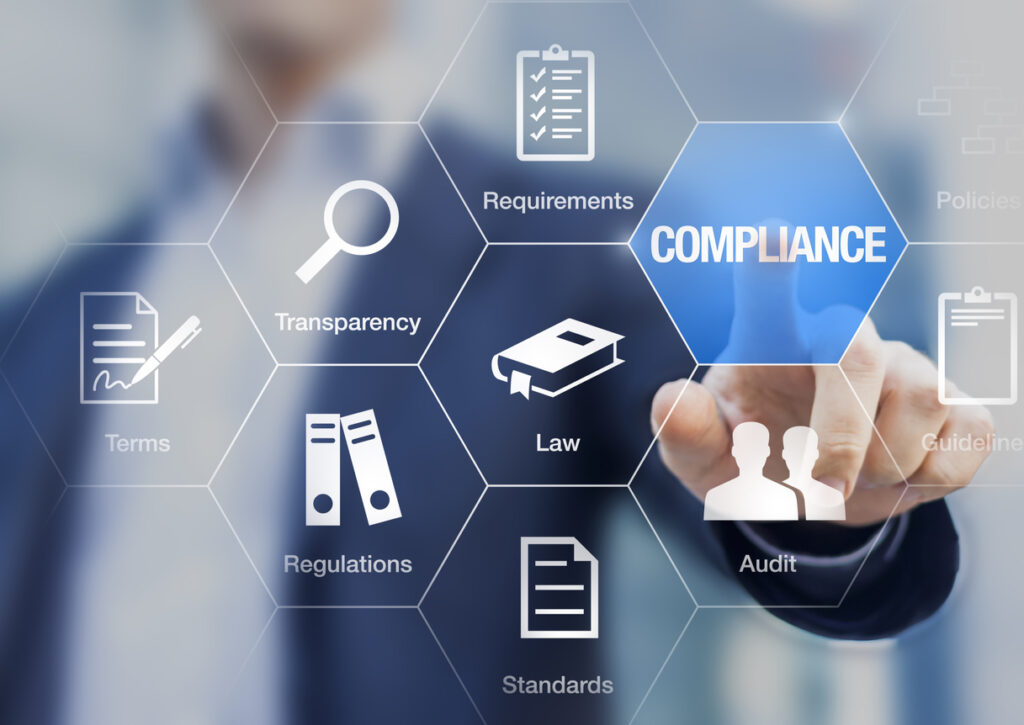Have you ever considered the role that corporate compliance standards play in attracting new talent, as well as retaining current employees? At first glance, this may seem like an odd question. Compliance programmes are hardly the first thing employees look for when exploring a new job opportunity. After all, isn’t compliance just about following the law, a requirement for the employer’s benefit?
While it is required by law, it is not the only reason why organisations, particularly the more progressive ones, invest in compliance programmes. Today, more than ever, both prospective and current employees evaluate a company based on whether or not organisational values and beliefs align with their personal ethics.
Employees value ethical companies
A company’s policy and stance on issues including diversity, sexual orientation, free speech and gender equality are of increasing importance for job seekers in our current workforce.
In fact, a recent survey from Deloitte found that the majority of millennials agree that it is important for businesses to behave in an ethical manner and 76% believe that businesses have the power to make a difference.
Separately, research from Deloitte and the Billie Jean King Leadership Initiative found that 83% of millennials are actively engaged when they believe their organisation fosters an inclusive culture – 13% higher than millennials who work for an organisation that does not foster an inclusive culture.
The conclusion drawn from these significant data points is abundantly clear: employees today truly value doing what is right beyond simply doing what the law requires. They value and take pride in working for a company that respects them, their coworkers and the community.
Employees at all levels must understand how to apply what they have learned on the job – even weeks or months after training has taken place, in an unfamiliar or uncomfortable situation.
Moreover, companies that are transparent about compliance policies allow employees to excel at their jobs, without worrying about discrimination or harassment, and these individuals can be confident that opportunities will be based solely on performance, not gender, race or religion.
Alternatively, companies that lack a clearly defined, inclusive and respectful culture risk not only failing to attract top talent, but also losing current employees.
Today’s skills shortage and the war for talent makes this a most unappealing prospect for arguably any company, regardless of size, location or industry. Because of this, it is absolutely essential that companies create, implement and maintain a comprehensive compliance programme that outlines and enforces what behaviour is and is not tolerated and expected from all employees.
Here are five proof points that indicate a culture of compliance:
1. Defined corporate policy
A company dedicated to compliance will have a clear code of conduct, as well as policies in place that ensure all employees are treated and valued equally. A code of conduct, signed by all employees, outlines legal, ethical and compliance risk areas and guides employees to make smart, sound decisions.
Moreover, standalone anti-discrimination and harassment policies, along with diversity and inclusion programmes, reinforce that a company has zero-tolerance for bias or discrimination based on gender, sexuality, religion etc.
2. Trusted leadership
Company culture is driven from the top down – leaders lead by example. A leader’s positive attitude, sound values and subsequent actions do not go unnoticed by employees and drive the overall culture of the company.
Ownership starts at the top with executive commitment, where the leadership team invests in establishing a “do-it-right” culture within the organisation. It must then move to middle management, where day-to-day leaders extend the culture to the overall activities and operations of the business.
3. Compliance education
Compliance training programmes educate employees about the plausible scenarios and risks within their industry. An effective compliance programme teaches employees the reasons behind the policies, provides preventative risk strategies and showcases the corrective actions that will be taken if a violation occurs.
Developing a programme that covers the right topics through the right modalities – with sufficient ongoing reinforcement – is crucial. If the execution of training falls short, it can impact the overall effectiveness of the programme and reduce any mitigating benefits.
As ethics and values become an increasingly important factor for all employees, companies who are truly invested in creating an ethical culture will likely flourish.
Employees at all levels must understand how to apply what they have learned on the job – even weeks or months after training has taken place, in an unfamiliar or uncomfortable situation.
Technology offers new avenues for curriculum delivery, including programmes hosted in the cloud or delivered through mobile devices. The use of scenario-based training modules increases the chances that employees will retain and understand what behaviour is expected at all times.
4. Open communication
Employees should always be encouraged to communicate concerns, voice apprehensions or report violations, without fear of retaliation. A company that supports an employee’s right to speak up builds mutual trust and reinforces a company’s commitment to compliance.
5. Tools to measure ethical behaviour
Business practices have integrated compliance principles throughout and are in place to enable a positive, ethical culture to thrive. Analytics and measurement tools help to objectively assess compliance efforts and holds a company accountable.
Data from customer complaints, internal ‘whistleblower’ reports, social media and sanctions by regulatory authorities to determine their rating can all be used as evaluation tools.
An objective assessment of organisational policies and procedures will identify strengths, weaknesses and areas that need improvement, and is the foundation for building a culture of compliance. As ethics and values become an increasingly important factor for all employees, companies who are truly invested in creating an ethical culture will likely flourish.










